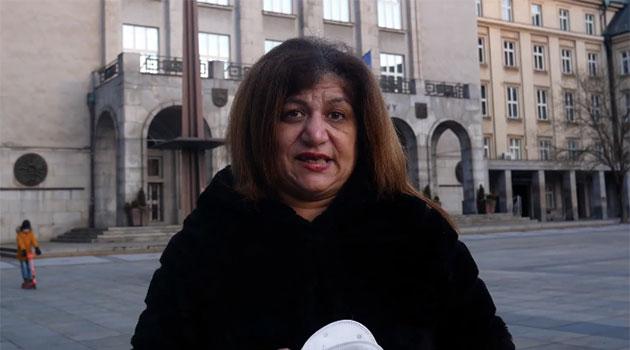Czech lower house passes bill to compensate the illegally sterilized, most but not all of whom were Romani women

Those who have been illegally sterilized are one step closer to being compensated by the Czech state after the lower house today approved a bill authorizing a one-time payment of CZK 300 000 [EUR 12 000] to those who will be able to document what happened to them. Most of those who have complained of being sterilized against their will were Romani women.
The Czech Senate will now receive the bill for assessment. It covers a period of almost 46 years from the time the Act on the Health of the People was adopted in the previous millenium up until the adoption of new norms for medical procedures in this millenium.
Those who were subjected to illegal sterilization without their informed consent between 1 July 1966 and 31 March 2012 would be eligible for compensation. According to the backgrounder explaining the bill, those eligible for compensation did not freely decide to undergo sterilization but were coerced into doing so under the threat of having their existing children taken away from them or their welfare benefits stopped.
If the law takes effect, those who suffered this treatment would have three years from the date on which it takes effect in which to file a claim. The applications would be assessed by the Czech Health Ministry.
Any applicants who disagreed with the ministry’s decision would be able to appeal the decision in court free of charge. The compensation awarded would be provided tax-free.
During today’s debate in the lower house, Czech MP Pavel Plzák (ANO) asked for an explanation of the unlawful nature of the sterilizations and how many doctors had been convicted of breaking the law. Czech MP Monika Jarošová of the “Freedom and Direct Democracy” (SPD Tomia Okamury) party said she was opposed to providing compensation.
Jarošová alleged that it could never have been possible to sterilize anybody without consent at any time in the past. Those objections were countered by Czech MP Olga Richterová (Pirates), who reminded the lower house that it was proven roughly 15 years ago that some women had been sterilized without the requisite consent.
“Situations have been documented that absolutely broke the law and went against the women’s wishes,” she said. Czech MP Jan Čižinský (Christian Democrats) said the law should not be perceived as an attack on doctors.
Czech MP Bohuslav Svoboda (Civic Democratic Party – ODS) told the lower house that “The law is meant to alleviate an error from the communist system. It has nothing to do with the field of gynecology or gynecologists.”
Czech MP Leo Luzar (Communist Party) referenced the Final Statement of the Czech ombudsman on the matter from 2005, which documented the cases of doctors having proceeded in violation of the regulations in effect at that time. Czech Government Human Rights Commissioner Helena Válková, who was a sponsor of the bill in her role as an MP, has expressed her joy at its adoption.
“I could not be present in person for the third reading because I am ill, but I am tremendously glad about the results of the vote. This is an enormous sucess for all who have been trying to correct the wrongs that happened in the past,” she told news server Romea.cz.
“I believe the Senate will not make any changes to the bill,” Válková told news server Romea.cz. Elena Gorolová, a Romani community member who suffered this treatment herself and is the spokesperson for a group of survivors, echoed that sentiment on behalf of the group in an interview for CNN Prima News: “”We are very glad the law was adopted in the third reading.”
“It’s important that this never happen again to any other women,” Gorolová said. According to the authors of the bill, as many as 400 people could apply for compensation, and men would also be eligible.
That means the state could end up paying out CZK 120 million [EUR 4.7 million] in compensation to those eligible. Czech MP Eva Matyášová (ANO), speaking on behalf of those who submitted the bill, said the Czech Public Defender of Rights has 100 applications for compensation for such treatment already on record.
The suspicions that Romani women were being forcibly sterilized in the Czech Republic were brought forward in the year 2004 by the European Roma Rights Centre. Dozens of women applied to the Public Defender of Rights (the ombudsman) and some also sued.
The Czech Government Committee against Torture recommended a compensation mechanism be introduced in the year 2006. In the year 2009 the cabinet expressed regret for the fact that the illegal surgeries had been performed.
A similar bill was prepared in 2015 by then-Czech Human Rights Minister Jiří Dienstbier (Czech Social Democratic Party – ČSSD). The Government ultimately voted not to put that bill forward.
